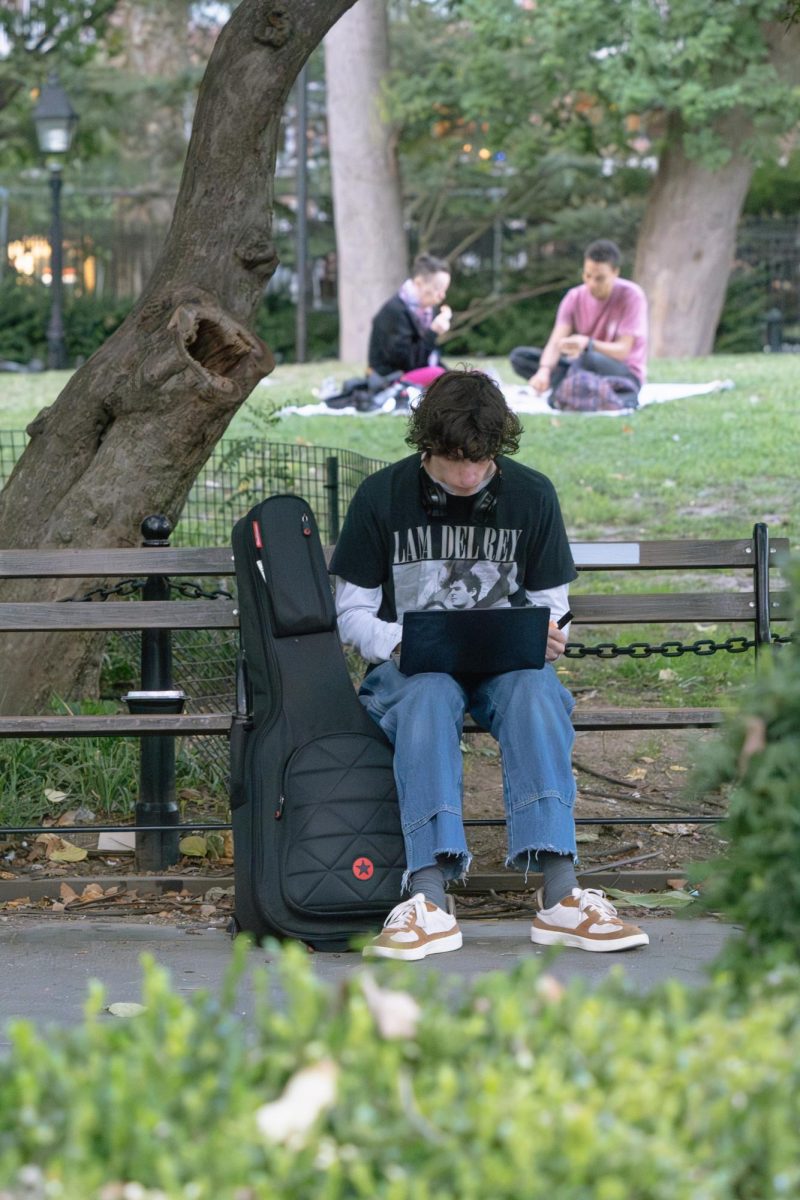As college students born into the digital age, we have grown accustomed — arguably against our will — to the ever-accelerating trend cycle. This constant bombardment of the senses has distorted our perception of what is in fashion. More disturbing, however, is the manner in which it has affected our conception of authenticity.
The “performative male” is the latest incarnation of this painfully predictable cycle, and while the memes were admittedly amusing in the early stages of their circulation, their continued pervasiveness implies a much darker story. To clear things up for any readers who may be miraculously and blessedly unaware of this archetype, the performative male can be defined as a man who leans into a calculated aesthetic as a means of attracting the attention of women. He adopts a blurry caricature of femininity that is both rudimentary and diminishing, all for the sake of sexual appeal.
The performative male reads feminist literature in public as he pointedly sips on a matcha latte. He can be seen tapping his loafer-bound foot to the tune of Clairo ringing through his artfully tangled headphones.
He is playing the role of sensitive, progressive and feminine to lure in unsuspecting, often liberal, women.
What makes this ostensibly nefarious is the fact that the man in question is not engaging in these hobbies because he enjoys them. No, he is not reading bell hooks’ “All About Love: New Visions” because he is interested in her contemplations on contemporary relationships. The performative male does not even like matcha, and he most certainly cannot name five Beabadoobee songs.
The meme asserts that he must be hiding his true nature behind baggy jeans, niche records and, dare I say it, Labubus. He is playing the role of sensitive, progressive and feminine to lure in unsuspecting, often liberal, women. But do not panic — there is no need to fear the performative man. We have sniffed him out, and we are all pointing and laughing as we pat ourselves on the back for seeing past his shoddy masquerade.
Allow me to make myself clear: I do not deny that there are men out there feigning interest in these things to attract women. These types have always existed, and virtue signaling is, unfortunately, a tale as old as time. In fact, we have seen this very phenomenon countless times before — let us not forget the abhorred ghosts of buzzword past: the male manipulator, the poser and even their more archaic counterpart, the metrosexual.
We are on high alert, scanning the landscape for these frauds that our feeds have been made out to be prowling on every corner, reading in every bar, smoking on every stoop.
However, this meme in particular has rapidly oversaturated our feeds to the point of ubiquity, and its underlying message is what I take serious issue with. Our scathing contempt for these so-called performative men has transformed into a profound prudence. We are on high alert, scanning the landscape for these frauds that our feeds have been made out to be prowling on every corner, reading in every bar, smoking on every stoop. We have all become judges of authenticity, and in our valiant, albeit misplaced, efforts to root out “performativity,” we have made it increasingly difficult to engage in anything genuinely.
This threat has been grievously inflated, and as is customary in times of crisis, we look to irony to save us. The performative male contests popping up in metropolitan areas across the nation are a clear manifestation of this. Authenticity has become a slippery commodity, so we don an impenetrable armour of ironic self-awareness, guaranteed to ward off anyone who dare question our legitimacy. We have beaten our imaginary and omnipresent spectator to the chase. They cannot point and laugh because we are already laughing at ourselves.
But smug self-deprecation will never deliver us from the surveillance culture that we have slowly but surely burrowed into. As we continue to internalize these seemingly harmless memes, we reinforce the notion that anyone and everyone around us is a master of deception. When we project this fear onto every interaction, it inevitably returns to haunt us. If everyone else is capable of deceit, what exactly makes us exempt? We begin to dissect our every move, and doubt and embarrassment sneak in to replace what was once uninhibited enjoyment.
What was once a call to confront manipulative tactics wielded by men has since devolved into a directionless criticism of a popular aesthetic.
Even if we are confident that we are reading a book out of genuine interest or carrying a film camera for a love of the craft, who’s to say that this won’t be misconstrued at any time? Anyone on the street could be silently scoffing at our supposed superficiality — or worse, sending a photo of us to @hipsters_of_ny, an Instagram account with a following of nearly 140,000. Consisting of New York City-specific memes, the account features candid photos of eccentric New Yorkers accompanied by witty captions that ridicule any attempt at self-expression, disingenuous or not.
While this trend initially targeted men exclusively, it has been reposted and recycled to the point of senselessness. What was once a call to confront manipulative tactics wielded by men has since devolved into a directionless criticism of a popular aesthetic. Performative contests have swelled to encompass other communities — namely, masc lesbians — with one taking place this past Sunday in Washington Square Park.
However, this variety of slander is not entirely arbitrary. There is an alarmingly subliminal theme lurking in the shadows of these performative fill-in-the-blank templates that, when examined with a critical lens, becomes unmistakable.
At the heart of our disdain lies a deep-rooted distrust in men, which is valid given the events of the last 200,000 years and the recent expansion of the virtual manosphere. However, when that distrust is founded entirely upon the assumption that any man who deviates from traditional expressions of macho masculinity is “tricking us,” our caution transforms into gender enforcement. In the midst of such a staggering wave of alt-right politics and escalating levels of transphobia in the U.S., it is no coincidence that individuals subverting the binary in any way, shape or form are being treated with suspicion.
The fact that our skepticism is largely targeting men exploring more feminine aesthetics and now women embracing masculine ones is both telling and terrifying. It implies that there is a “natural” and therefore more virtuous means of expressing gender, slyly fortifying the very notions that uphold binaries.
Given the current political climate, it is critical, now more than ever, that we scrutinize the media that we consume and share. There is nothing wrong with poking a little fun, but when it burgeons into a popular consciousness riddled with vigilance and cynicism, we ought to take a step back. Let us not forget that there are more pressing matters than whether or not a hypothetical man is drinking a hypothetical matcha for the “right reasons.”


